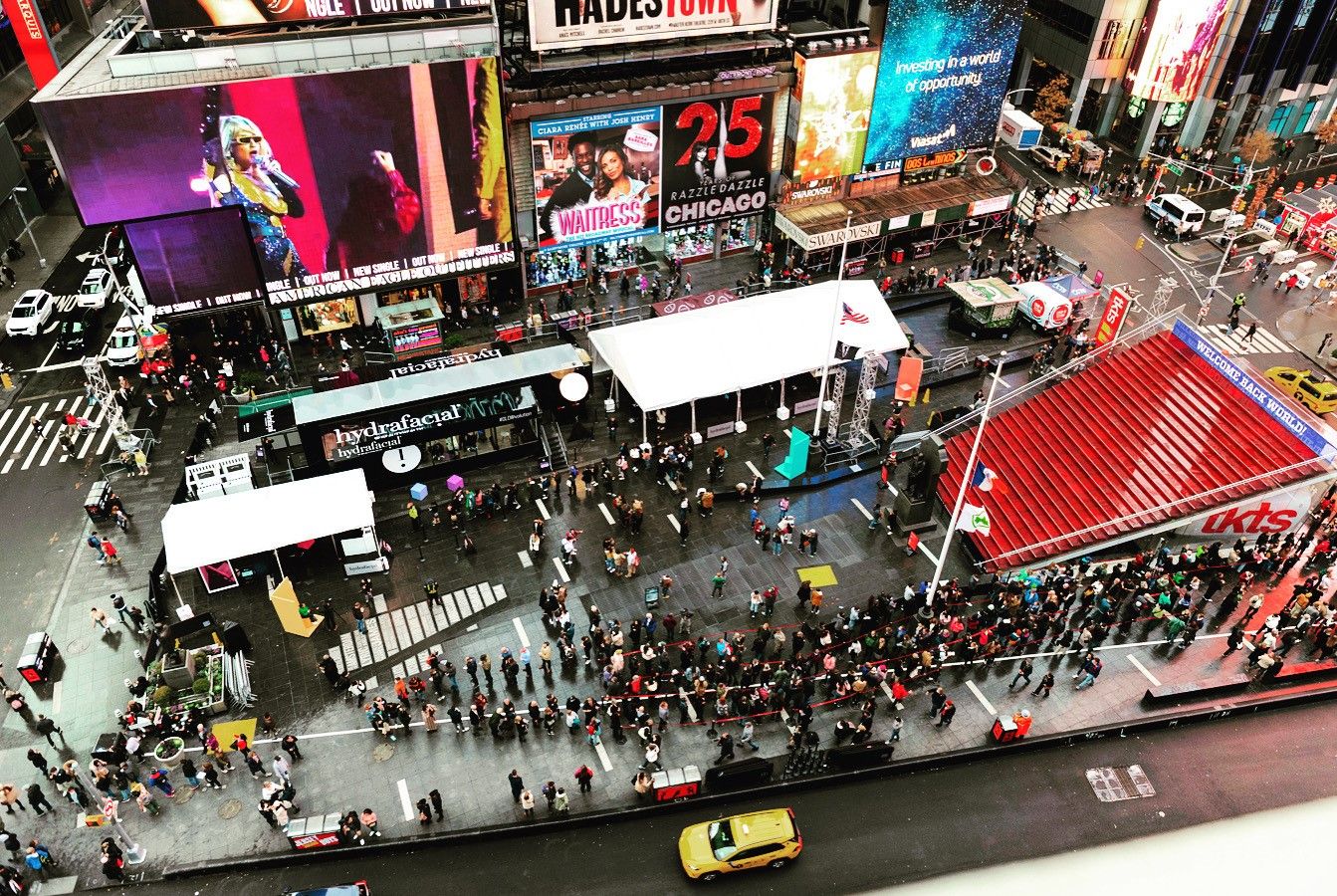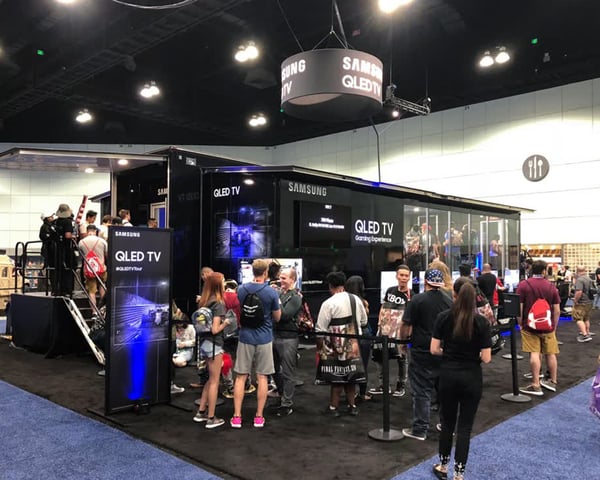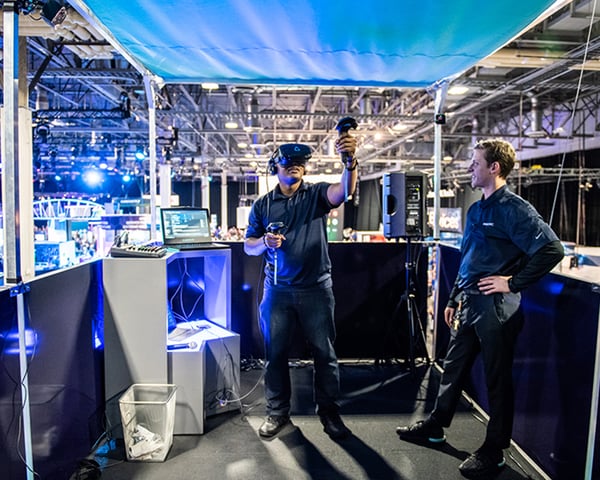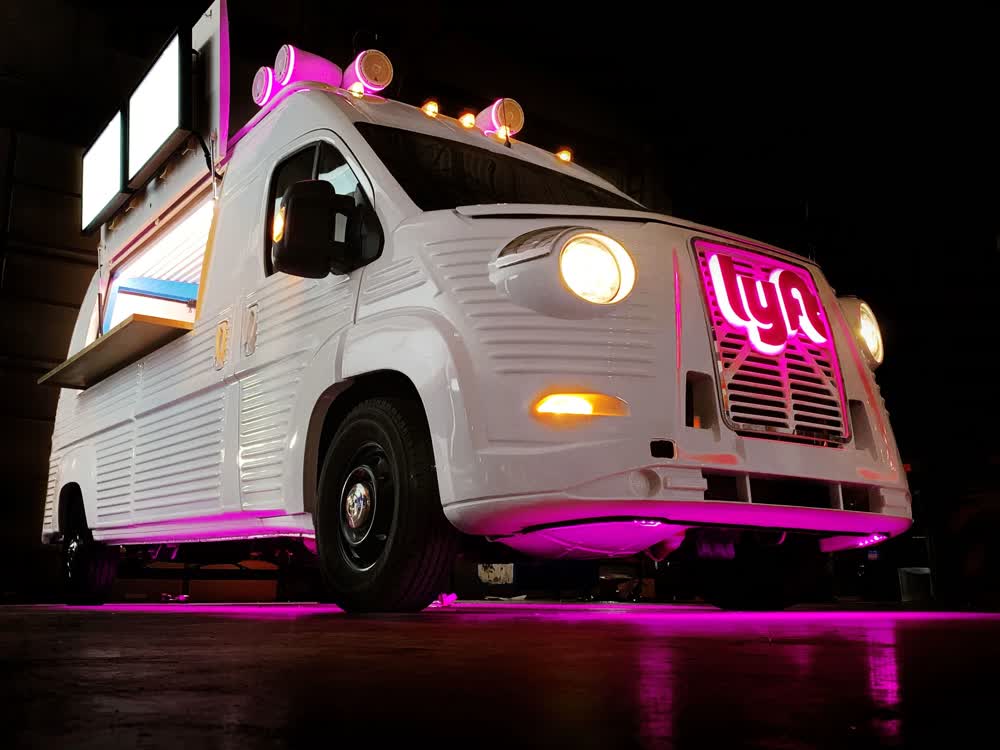The Most Common Types of Experiential Marketing for Your Business
In today's fast-paced advertising and marketing world, companies always seek new and innovative ways to engage with their target audience. One...
6 min read
Craftsmen Industries Dec 24, 2023 9:26:00 AM

Personal experience has always been the best way to learn or get familiar with something. That’s one of the many reasons why experiential marketing is on the rise. But how does experiential marketing impact consumer engagement at events, and is it something you should consider?
If you want to take your business to the next level, reach a broader target group, and stand out from your competition, getting a mobile unit and using it for experiential marketing is one of your best options. As experts in the construction industry, we have some insider tips for elevating your business.

Source: craftsmenind.com
Experiential marketing is a strategy that many companies consider and for a good reason. Instead of the traditional way of observing the product you offer, customers have the opportunity to personally experience the product or service.
One of the best ways to bring your brand closer to your audience wherever they are is by using a mobile marketing vehicle for events. If we build one for your business, you will definitely unlock a multitude of benefits.
Firstly, if you are working in an industry where there are a lot of events where the presence of your brand is vital for growth, you can utilize the vehicle to deliver a memorable experience to diverse locations and audiences.
Mobile vehicles for events combined with experiential marketing allow you to expand your work in areas where you would be typically limited to reach with traditional advertising methods. What’s more, we will customize your vehicle to suit your specific event themes and put the focus on your experiential marketing tactic.
So how does experiential marketing enhance the overall event experience for consumers? The most emphasized are:
Now, let’s see what are the benefits of incorporating experiential marketing into event planning.
The first benefit is that experiential marketing makes you stand out from your competition. If you are targeting an audience in an industry where you have to compete with many other businesses, experiential marketing will bring you one step ahead of them. Additionally, you will position your unique presence on the industry map with your uniqueness.
With a proper marketing strategy, you can boost brand awareness by giving your target audience a unique experience with your product or service. At the same time, you will be creating a loyal customer base that is more likely to make another purchase in the near future. It engages your potential clients to try out the product or service and additionally motivates them to take action.
Experiential marketing also increases your chances of going viral. It is much easier to grab the attention of media and influencers with creative marketing campaigns. Compared to other strategies, using experiential marketing at events makes them more “shareable”.
Combining all of the above-mentioned benefits, experiential marketing makes your brand more memorable. Your brand will be presented in a non-sales-oriented manner, triggering the curiosity of the potential customers.
There are several experiential marketing strategies, and the most commonly used are:
Experiential marketing and event marketing typically can’t go one without the other. Hosting or attending events is the most popular way to get in contact with your target audience.
In a digital era, you want to focus on hosting virtual or hybrid events, but according to a survey of marketers, in-person events are one of the most effective.
As with every other business seeking an adequate marketing strategy, you might be wondering what is the impact of experiential marketing. The good news is that with a good marketing plan, the impact can be multifold.
The effectiveness of experiential marketing is typically high. The reasons behind the big success of many experiential marketing campaigns include:
In addition, experiential marketing is one of the ways you can collect data and insights about your target group. Through direct interactions, you can learn more about their preferences so you can leverage the information for your next steps.

Source: craftsmenind.com
When you understand how does experiential marketing impact consumer engagement at events, it can be easier to create a successful campaign. There are many aspects you should pay attention to depending on your objectives.
Firstly, you must find your target group. If you already have a brand persona, it will be easy for you to find your target audience. Along the way, you need to analyze your existing customer data and their need by conducting thorough market research.
You need to explore the demographics of your current and potential target audience. The more specific your target group, the better the experience, possibly leading to better results.
Your business can have different objectives with your experiential marketing strategy. They can include:
Depending on your target audience and goal, you will have to think of an engaging way to reach your audience. Your company should look for ways to immerse the participants into your brand’s world.
You can go with crafting a universal compelling narrative that connects all of your target audience, or you can offer personalization and customization. Whichever way you choose, ensure you are encouraging active participation, promoting social sharing, and being open to adapting according to their needs.
There are so many advertising channels, and each of them has a specific purpose. The choices are endless, from offline and online advertising channels to other different forms of advertisements.
Your company should find the perfect fit for your target audience and objective. Think about their everyday activities, and you will be one step closer to promoting your event and getting more visitors at your event.
A successful experiential marketing strategy will result in long-term engagement from your customers. Use all the benefits of experiential marketing to keep the attention of your customers even after your event is finished. The best way to enhance long-term engagement is by making memorable activities that will increase the chances of the customer having your brand on their minds.
Most importantly, after your experiential marketing campaign is over, you should measure its success. It is crucial to get feedback from your customers and see what you can do better next time.
Experiential marketing has multiple key performance indicators.
If we have convinced you that experiential marketing is something you should consider, we can help you take your brand everywhere you go. Our experienced team of designers, engineers, and manufacturers can make your dream experiential marketing vehicle.
We are experts in building many vehicles, ranging from small to large, and for various purposes. Our services include everything from designing and planning to fabrication and painting, so you can plan a campaign with promising results.
By using mobile vehicles for experiential marketing, you will be following in the footsteps of big and successful corporations such as Coca-Cola, Mtn Dew, ESPN, Bud Light, and many more.
In terms of experiential marketing, you can rely on us for different products. You can use them for many purposes, such as:
Our work is diverse, and we can manufacture an entirely customized vehicle for your experiential marketing campaign.
In the category of mobile promotions and experiences, we can manufacture vehicles such as:

Source: craftsmenind.com
When you are making an experiential marketing plan, you can engage the five human senses: smell, taste, touch, sound, and sight. Depending on the service or product you are introducing the customer to, you can also provide your customer with a multi-sensory experience.
The main difference between traditional strategies and experiential marketing is the approach. In traditional marketing, the company focuses on finding rational reasons why their services and products are the best choice. On the other hand, experiential marketing also involves the customer’s senses and emotions and practically shows them why they should make a purchase.
As with every other marketing strategy, experiential marketing has a few challenges. Firstly, creating a memorable experience isn’t as easy as it seems. Also, measuring the ROI of experiential marketing and getting measurable data is also tricky.
The importance of experiential marketing is crucial. In a time where customers are overwhelmed by getting information from traditional marketing channels, experiential marketing is something that will grab their attention. Doing something unique will increase your brand awareness and prove your worthiness on the market.
Experiential marketing at events is trending because of its high effectiveness and uniqueness. With the right strategy, you can engage your audience and create meaningful and long-term emotional relationships.
Now that you understand how does experiential marketing impact consumer engagement at events, you are ready to contact us if you need assistance with some aspects of your project. On the other hand, if you already have an idea, you can request a free quote.

In today's fast-paced advertising and marketing world, companies always seek new and innovative ways to engage with their target audience. One...

Marketing is one of the most important aspects of running a successful business. Marketing brings awareness to your products or services, which can...

Discover how experiential marketing events can elevate your brand and engage your audience like never before.